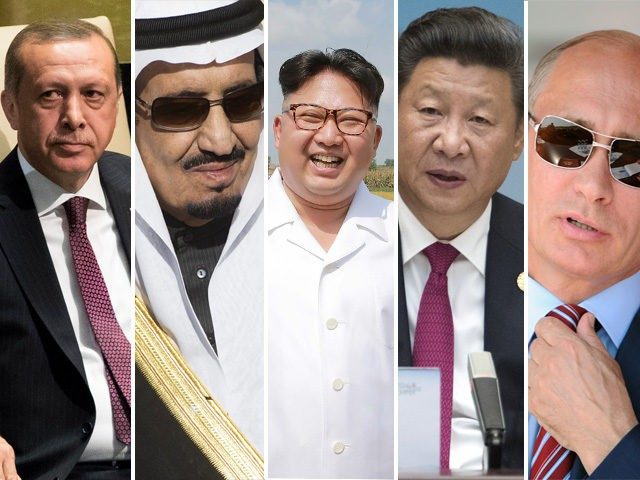The new authoritarian masters of the Internet wasted no time exploiting President Obama’s handoff of American control.
Writing for the Wall Street Journal, former FCC commissioner Robert M. McDowell, now a senior fellow at the Hudson Institute, and Gordon M. Goldstein of the Council on Foreign Relations—a Republican and a Democrat, respectively—warned on Tuesday that “the future of the Internet could be at stake in a conference beginning this week in Tunisia.”
The conference in question is the World Telecommunications Standardization Assembly, and it will address “cybercrime, privacy, and the potential regulation of Internet companies, applications, and content.”
A hot topic will be the Internet of Things, the galaxy of Internet-capable gadgets that will soon number in the tens of billions, and which is very much on the minds of regulators at the moment, since they just discovered it has security flaws that can turn wifi-enhanced cameras and baby monitors into a savage horde of digital gremlins at the command of hackers.
As McDowell and Goldstein explain, a proposed strategy for securing the Internet of Things would be the creation of a “Digital Object Architecture” that “could enable the real-time surveillance and tracking of each device and individual connected to the web.” It may also give governments an unprecedented ability to monitor and tax transactions at a microscopic level, right down to individual credit-card and ATM transactions.
Some governments are calling for such a system to be made mandatory on a global scale, to be controlled by the United Nations International Telecommunication Union. As the authors warn, that could mean a bigger role for authoritarian governments like China and Russia:
The brewing conflict comes at a difficult moment. On Oct. 1, the Obama administration relinquished its legal oversight of the Internet Corporation for Assigned Names and Numbers (Icann), which manages the Domain Name System. The fight over Icann’s future ended a decadeslong bipartisan consensus on how to protect an open internet. U.S. policy makers should put the Icann fight behind them and work together to think strategically about the emerging geopolitics of the internet and restore bothunity and resolve to a fragmented American tech policy. At risk is the internet’s technical architecture and regulatory structure, which scores of nations seek to bring under foreign government and multilateral control.
These latest developments are part of a broader shift in the relationship between government and the internet. Countries like Russia, Iran and Saudi Arabia are all pursuing a grand strategy to use international organizations, particularly the U.N., to control the digital future. The Tunisia conference is the latest in a series of efforts to expand the International Telecommunication Union’s mandate beyond its historical function of telecommunications coordination.
As they go on to document, authoritarian countries have been grasping for such control since the turn of the millennium, and they viewed prying ICANN away from the United States as a vital step. It should bother Americans a great deal more than it evidently does that all of the world’s hardline control-freak governments are very comfortable with the idea of the United Nations having authority over the Internet.
Indeed, for much of the free world, the essential first step of qualifying free speech has been taken, as liberty is trumped by security concerns, and “hate speech” is banned. When free speech becomes negotiable, we will find ourselves sitting at the table with some very tough negotiators, and Obama’s Internet handover leaves us without much leverage to keep authoritarian powers in check.

COMMENTS
Please let us know if you're having issues with commenting.